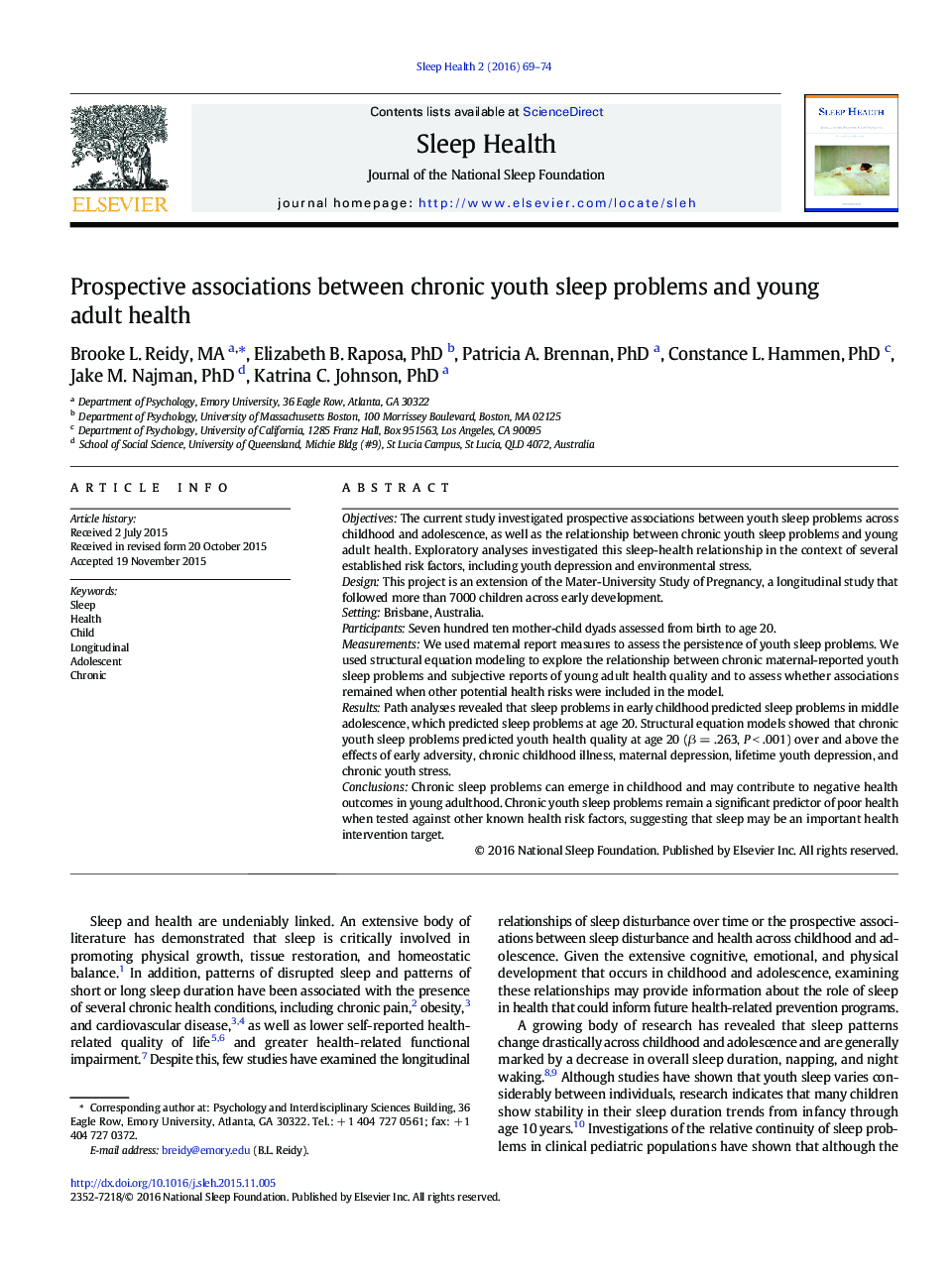| Article ID | Journal | Published Year | Pages | File Type |
|---|---|---|---|---|
| 916311 | Sleep Health | 2016 | 6 Pages |
ObjectivesThe current study investigated prospective associations between youth sleep problems across childhood and adolescence, as well as the relationship between chronic youth sleep problems and young adult health. Exploratory analyses investigated this sleep-health relationship in the context of several established risk factors, including youth depression and environmental stress.DesignThis project is an extension of the Mater-University Study of Pregnancy, a longitudinal study that followed more than 7000 children across early development.SettingBrisbane, Australia.ParticipantsSeven hundred ten mother-child dyads assessed from birth to age 20.MeasurementsWe used maternal report measures to assess the persistence of youth sleep problems. We used structural equation modeling to explore the relationship between chronic maternal-reported youth sleep problems and subjective reports of young adult health quality and to assess whether associations remained when other potential health risks were included in the model.ResultsPath analyses revealed that sleep problems in early childhood predicted sleep problems in middle adolescence, which predicted sleep problems at age 20. Structural equation models showed that chronic youth sleep problems predicted youth health quality at age 20 (β = .263, P < .001) over and above the effects of early adversity, chronic childhood illness, maternal depression, lifetime youth depression, and chronic youth stress.ConclusionsChronic sleep problems can emerge in childhood and may contribute to negative health outcomes in young adulthood. Chronic youth sleep problems remain a significant predictor of poor health when tested against other known health risk factors, suggesting that sleep may be an important health intervention target.
